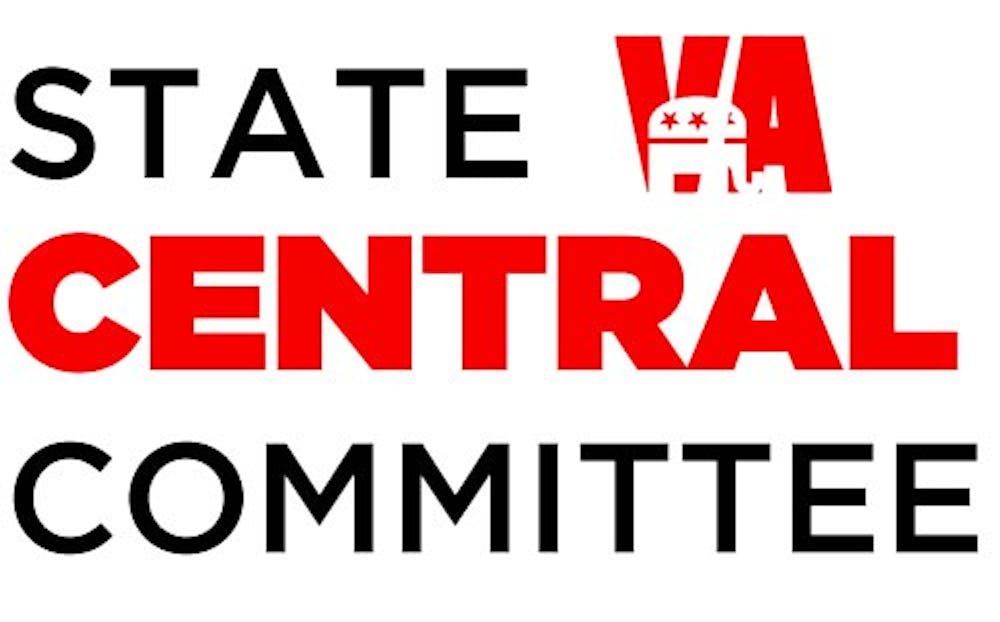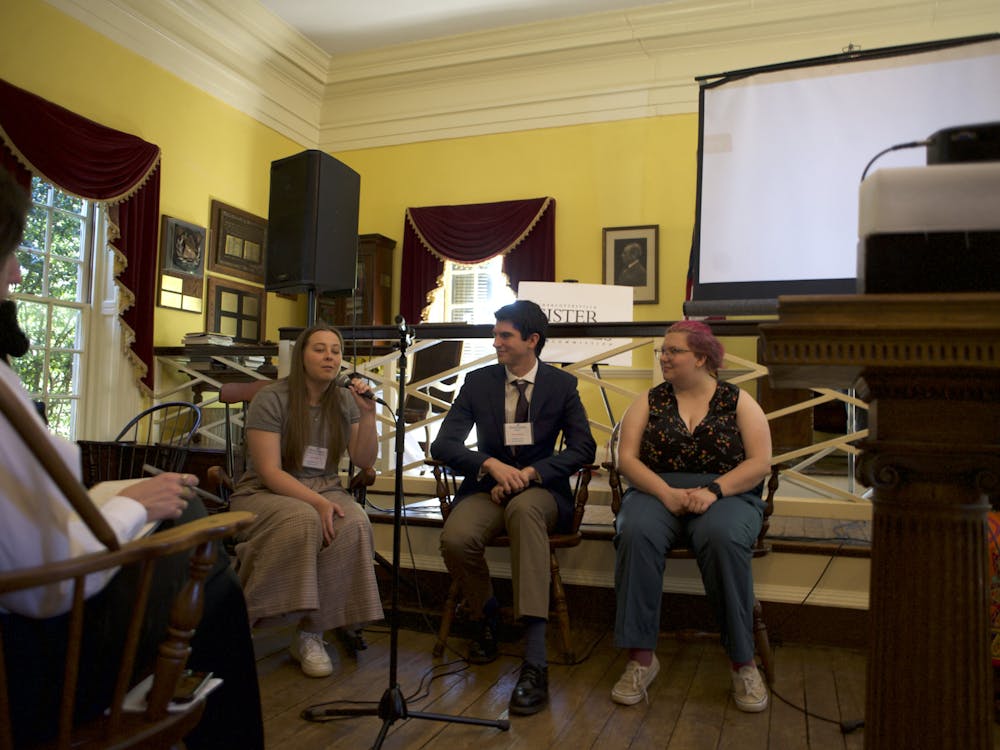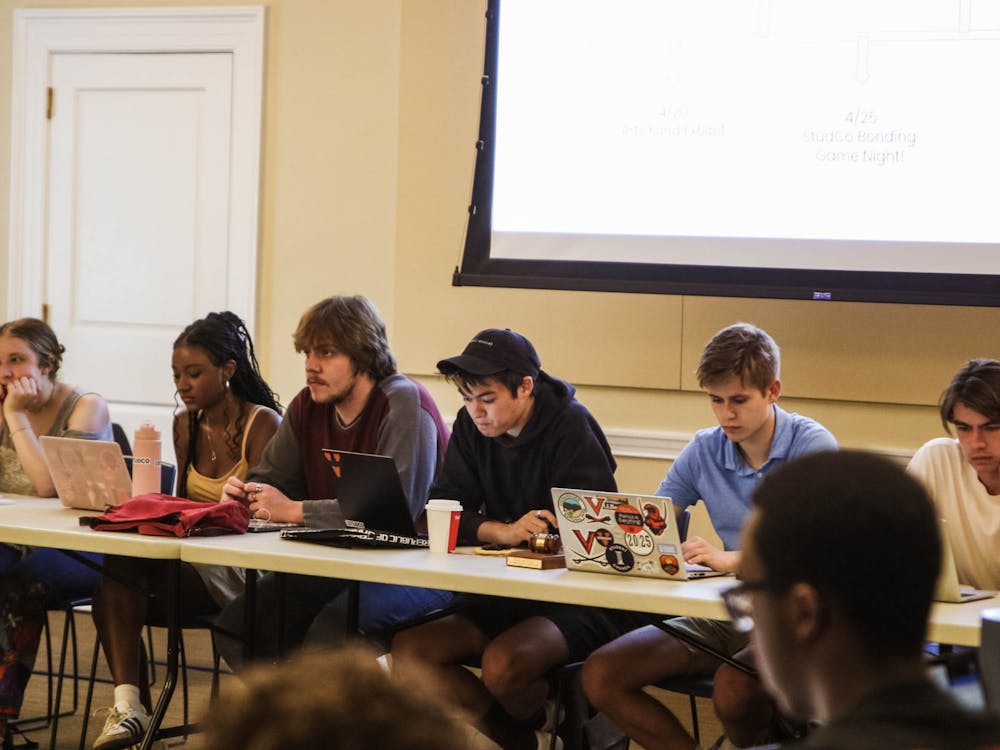The Republican Party of Virginia requested on Jan. 30 to rescind the loyalty oath which Republican primary voters would be required to sign in order for their vote to count.
Virginia voters are not required to select a party affiliation as either Democrat or Republican during the registration process because the state holds an open primary.
However, state law allows either party to require primary voters to sign a pledge showing their intention to support the party’s candidate. The requirements for voting in the party’s primary must also be determined at least 90 days before the primary date and be certified and approved by the State Board of Elections.
Both parties have used loyalty oaths in the past.
The Republican Party of Virginia, or RPV, originally decided such a form was necessary for the 2016 election cycle and drafted a loyalty oath for primary voters to sign.
The main reason for using this oath was so they could get the forms back to use for voter contact enhancement, Steven Albertson, of the Virginia State Central Committee, said.
The original form was drafted on a full sheet of paper having only 47 words and was sent to the State Board of Elections for approval.
The State Board of Elections is composed of three members — two Democrats and one Republican. The group reformatted the form and only nine of the original 47 words were kept.
According to the board’s meeting minutes from Dec. 16, 2015, the formatting was based on similar documents previously approved by the board in 2011.
“The words they took out they replaced with a lot of legalese and sort of scary, ‘If you don’t do this, you’re not going to be able to vote’ kind of language that wasn’t particularly helpful,” Albertson said.
He also described the form as being shrunk so four fit to a page.
“The type was roughly six-point font. It was impossible to read. You had four lines of text in less than a half inch, and no place to sign,” Albertson said. “It was something that if we wanted the information on the form we would have to issue a FOIA request to get it back.”
Martin Mash of the Virginia Department of Elections said only minor changes were made to the oath itself.
“When the executive director of the Republican Party brought the oath to the board, the board expressed some small concerns about the language of certain aspects of it,” Mash said. “They made clear to the executive director that only two words were going to be changed as far as the oath itself is concerned.”
The additional words were part of a notice required under code, Mash said, and it was important to distinguish between the notice to voters and the pledge itself, which are both included on the same document and appear to be the same form.
Should voters have refused to sign the oath, they would then have to be issued a provisional ballot.
“That was what really I think tipped us over the edge because under that statute the local electoral boards are obligated to not count those ballots unless somebody signs the form,” Albertson said.
At the State Board of Elections meeting Dec. 16, several officials opposed the use of a loyalty oath, including Olga Hernandez of League of Women Voters of Virginia.
“A pledge and the process of issuing the pledge would be a nightmare to election officials and [would] unduly increase the length of the lines,” Hernandez said, according to the meeting minutes.
She also said the legality of denying voters a ballot for refusing to sign a statement should be considered.
John Findlay, executive director of the Republican Party of Virginia, told the Board of Elections the document should be considered a statement and not a pledge.
After more debate, the board moved unanimously to approve the proposed Voter Statement of Republican Party Affiliation.
The RPV did not request the statement be removed from the primary until Jan. 30.
Geoffrey Skelley, media relations coordinator for the University’s Center of Politics, said the Republican Party’s decision to rescind the oath is worrying because absentee voting began in mid-January.
“Now the State Board of Elections has to figure out what they’re going to do with those absentee voters’ ballots,” Skelley said.
The open primary system in Virginia allows Democrats and Republicans to use loyalty oaths, but an oath doesn’t make sense in a year where both parties are holding primary elections, Skelley said.
“With the current Democratic presidential primary, there’s really not a reason to worry about Democrats voting in the Republican party, at least not many… just because they have their own one to vote in,” he said.
The State Board of Elections will be holding a special meeting Feb. 4 to discuss the RPV’s request to rescind the voter statement of affiliation. If it votes to remove the oath, the board will also decide what to do about absentee ballots which have already been cast.





